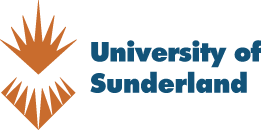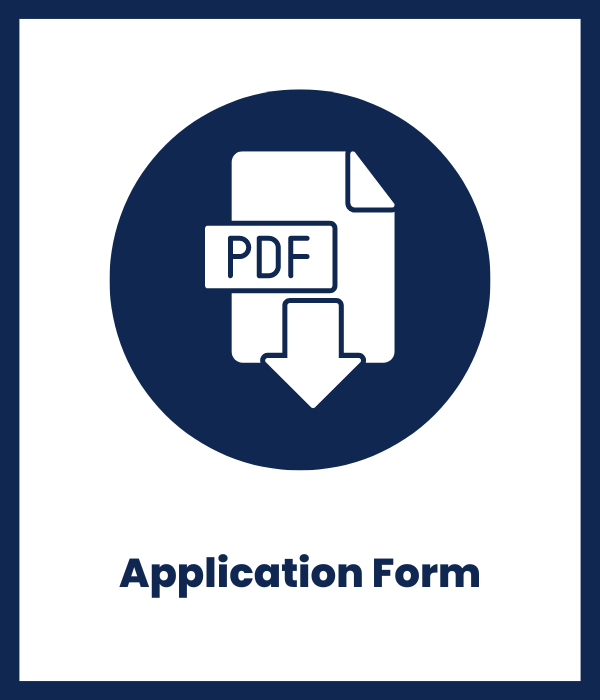Overview
London Academy Business School, in partnership with the University of Sunderland, is bridging the gap between theory and practice in Nigeria, the most populous country in Africa, leading the way in academic excellence. This synergy provides an opportunity for students to immerse themselves in an academic experience tailored for the African market.
This invigorating and comprehensive course is designed to blend hands-on development with the theoretical foundations that explain how and why computers operate as they do. Students in Nigeria will enjoy complete access to the University's top-notch IT facilities, which consist of specialised networking laboratories crafted for the African context.
We are committed to offering professional-level developer software and cutting-edge hardware in line with international standards. Our collaboration with global giants like Cisco and other prominent companies ensures that our curriculum is aligned with the industry's best practices and demands.
Our curriculum, adapted for the African market, covers a broad spectrum of topics such as programming, software development, database systems, artificial intelligence, Internet of Things, and cybersecurity. London Academy Business School's connection to the local environment ensures that the course is attuned to the unique technological challenges and opportunities in Africa, paving the way for a new era of technological innovation and academic excellence on the continent.
Course structure
Teaching methods include lectures, tutorials, seminars and laboratory sessions. You will be encouraged to develop independent study skills as well as work with other students on group projects.
As well as assessments that count towards your degree, there are also ongoing opportunities for feedback and consolidating your learning.
Software Engineering (20 credits)
Explore a wide range of software engineering techniques and industry practices, designed to promote the production of high-quality, efficient, reliable, and secure software. Examine how software is created and the various stages of the software development lifecycle, together with consideration of social, ethical, professional, and legal issues. Evaluate software products to ensure that they are functioning correctly, and conclude their strengths and weaknesses.
Computer Systems, Architectures and Networks (20 credits)
Gain an overview of how a computer works, from the moment it is switched on. Explore what happens inside the machine, including how computers process input, generate output and store data. Install and configure a modern operating system, and troubleshoot hardware and software problems using real equipment and simulations.
Introduction to Programming (20 credits)
Learn about the fundamental programming concepts, including how to write computer programs using a high-level programming language such as Python or C#. Develop an understanding of debugging techniques to find and resolve defects. Select and implement appropriate structures for file handling, data manipulation, and error handling within a program.
Full Stack Development (20 credits)
Explore both front-end and back-end web development, and use frameworks to create a fully dynamic web application. Consider the development of the modern web and review the underlying technologies and standards. Create programs that run on a live web server and use a modern programming language.
Specialist Project (20 credits)
Explore and develop an individual project based around your preferred area of study. Work directly with subject specialists in workshop-style sessions to explore your specialism. Appreciate the social, ethical, professional, and legal issues as they apply to computer-based systems.
Emerging Technologies (20 credits)
Delve into the emergence of novel tools and techniques within computer science. Discuss the potential impacts of a range of emerging technologies on industry and society, including virtual and augmented reality, drone technology, cryptocurrencies, wearable technologies, and cybersecurity. Consider the issues associated with end user adoption of new and emerging technologies.
Agile Development and DevOps (20 credits)
Learn how to use Agile and DevOps practices in modern software development, using a range of modern tools and technologies. Apply SCM concepts and GIT commands to a range of developer situations. Design, develop and deploy a workflow on a remote repository that automatically builds, tests and deploy a software product.
Database Systems (20 credits)
Gain a foundational understanding of database and the relational database model. Learn to use extended relational programming languages for manipulation of relational databases. Analyse and evaluate current problems and insights associated with modern secure database information systems development.
Advanced Programming (20 credits)
Propose solutions to programming problems through OO software design modeling, using UML diagrams, notations, and techniques. Apply advanced OO programming constructs to the development of professional-standard software. Select appropriate software design patterns, data structures and algorithms to provide efficient solutions to complex programming problems
IoT and Robotics (20 credits)
Enhance your understanding of IoT technologies and their application to robotics and automation. Use driver packages, with appropriate programming language (such as Python) for prototyping IoT device applications involving the use of sensors and effectors. Apply appropriate networking concepts (such as protocols, transports, and services) to support the remote operation and connectivity between edge computing devices.
Cyber Security (20 credits)
Analyse security principles and the core technology used to enforce and maintain security of data and computer systems. Investigate case studies of cyber security incidents relating to businesses, where social factors such as social engineering, oversharing, and phishing attacks have played a major part. Design and create a secure system.
Enterprise Project (20 credits)
Participate in the organising, running, controlling, and monitoring of a team tasked to produce a computer-based solution to a client-posed problem. Respond to client analysis and feedback to progress and complete your prototype solution. Appreciate enterprise approaches for software project determination, selection, development, implementation, and criteria-based evaluation.
Industrial Placement (120 credits)
Spend 48 weeks on placement working within the industry. Refine, plan, schedule and produce an individual project based on your experience. Critically reflect on the skills and experience gained as part of your placement.
Computing Project (40 credits)
Articulate an in-depth knowledge and critical understanding of your chosen research topic. Develop your professional skills, such as problem-solving, creativity, critical thinking, self-reflection, and time management. Collect, organise, and present your body of work, including a critical evaluation and correct citation and reference of appropriate research sources.
Artificial Intelligence (20 credits)
Examine a range of AI techniques and their application to problem-solving within society, industry, and research. Develop an awareness of the contemporary developments in the field of AI and their application and potential implications. Critically assess real-world problems and determine which AI approaches are suitable for their solutions.
UX Design (20 credits)
Translate research user and contextual data into human-centered design tools such as user stories, personas, and scenarios. Design and develop digital prototypes for a given problem specification. Critically evaluate the usability and user experience of a given interactive system.
Mobile Technologies (20 credits)
Investigate the different ways apps can be created and look at the range of technologies available for the creation of web apps, hybrid applications, and native applications. Design and create applications for a range of different hardware platforms, such as smartphones, tablets, wearable technology, and embedded systems. Critically evaluate a mobile application designed for cross-platform deployment.
Big Data and Visualisation (20 credits)
Dive into the key concepts and applications of Big Data, including how to manage, use, analyse and visualise Big Data effectively in real-world scenarios. Examine Big Data challenges, including privacy issues and data storage. Select and apply Data Science tools and methods such as data visualisation, data mining, and data analytics for analysing Big Data sets.
Course Fee
2023/24 fees
The annual, full-time fee for this course is:
£4500
Fees
£1000
Scholarship
Entry Requirement
States WASSCE or equivalent , this should be Senior Secondary School Certificate (SSSC) or a West African Senior School Certificate (WASSC) plus an International Foundation Programme with 60% or above for stage 1 entry.Why Chose LABS?
London Academy Business School (LABS), in a significant partnership with the University of Sunderland, is pioneering an extraordinary path in bridging the gap between theory and practice, right in Nigeria, the heart of Africa.
- Access to World-Class Equipment: With LABS, you’ll have full access to cutting-edge technology within the School of Computer Science. Tailored to meet the demands of the African market, this access ensures you can apply your skills in an environment that mirrors industry standards in the continent.
- Flexible 4-Year Sandwich Course: Our specially designed 4-year sandwich course allows you to integrate theory with practice. A full year is dedicated to placement, providing invaluable real-world experience in the thriving tech industry of Africa.
- Leverage the Growth in Sunderland: Sunderland is not just a city in the UK with the second-fastest growth in digital turnover outside of London; it's a symbol of what LABS aims to replicate in Africa. As we tap into this knowledge, innovation, and entrepreneurial spirit, LABS is the ideal place for studying computing and initiating a business in Africa. We bring Sunderland's success to your doorstep, adapting it to the unique opportunities and challenges of the African landscape.
With London Academy Business School and the University of Sunderland, you are not just enrolling in a course; you are embarking on a journey that amalgamates international standards with local insights. Embrace this opportunity to equip yourself with the skills and experiences that resonate with the burgeoning technological landscape of Africa. Join us in leading the way towards a future filled with innovation, excellence, and success.









.webp)













